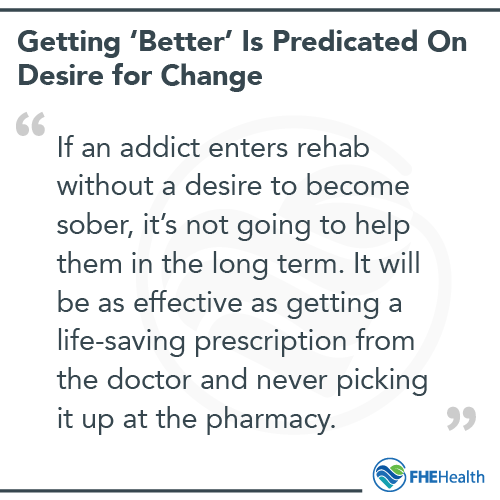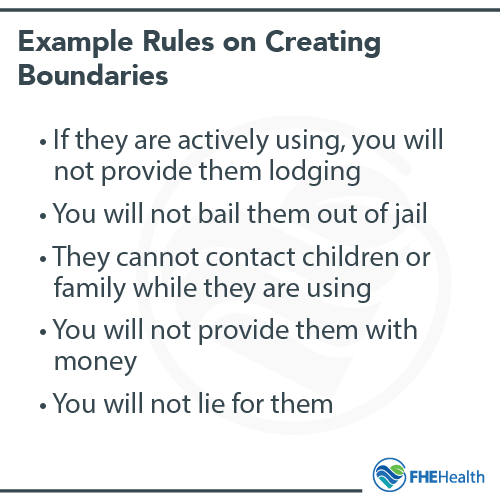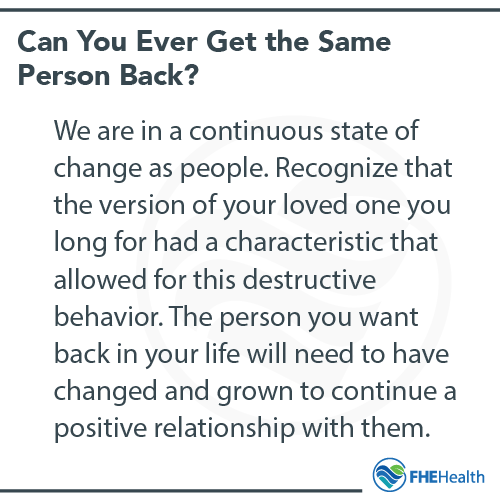It’s happened again. Your loved one has promised to change, not to use drugs or drink alcohol, and yet, here you are, facing their broken promise. You’ve tried time and time again to forgive, forget and have hope.
Now, you’re wondering, does addiction last a lifetime? Is there any real hope of not having to deal with this for the rest of your life?
If you’re living with a person that’s constantly breaking promises and continues to use, you are likely overwhelmed and frustrated. It’s easy to find yourself wondering if they can ever change or if they are lost to you.
It’s not uncommon to feel this way. Recognizing what’s possible and realistic for the future is important.
Can They Be Saved?
 There’s no way for you, as a loved one, can make them change. You cannot create, out of thin air, the desire to be sober or the willingness to get help.
There’s no way for you, as a loved one, can make them change. You cannot create, out of thin air, the desire to be sober or the willingness to get help.
This is a difficult realization, but one many people with an addicted loved one have had to face. What does it take for an addict to turn over a new leaf and maintain a long-term path toward sobriety and health?
First, realize you cannot force them to get help. If an addict enters rehab without a desire to become sober, it’s not going to help them in the long term. It will be as effective as getting a life-saving prescription from the doctor and never picking it up at the pharmacy.
They must come to the realization themselves that they have an addiction and need help. Once a person does this, they’re able to begin on the path toward recovery.
Even if a person enters rehab, they will continue to face addiction for years to come. They have to manage triggers or situations that make them think about and crave alcohol or drugs. They need to work through past trauma, which could be a key cause of their need to use.
They also may have mental health disorders that need to be addressed. Most often, there are physical health needs as well. Does addiction last a lifetime? The short answer to this is yes.
How to Change a Drug Addict
When you learn how addiction hijacks the brain and creates significant physical and emotional changes in a person, you can begin to see what steps you can take to help them. You can’t force them to change, but you can make it hard for them not to.
You can also encourage them to get help by showing them the value of their life and the opportunities available to them. Here are a few key steps to help promote change.
Create Hard Boundaries
 People with an addiction may continue to disappoint you with failed promises. However, you can empower yourself by creating very specific boundaries and limiting their ability to benefit from you if they overstep them. Here are a few examples:
People with an addiction may continue to disappoint you with failed promises. However, you can empower yourself by creating very specific boundaries and limiting their ability to benefit from you if they overstep them. Here are a few examples:
- If they use drugs or alcohol that day, they cannot stay in your home that night.
- If they get caught driving intoxicated, you won’t bail them out of jail.
- If they’ve been using drugs or alcohol, they cannot contact your children.
- You won’t provide them with access to money to buy drugs and alcohol.
- You won’t lie for them to employers, schools, family and friends.
Creating strong boundaries like this helps a person to see that they cannot just continue to live as they are. What’s most important is that you stick 100% to any boundary you set.
This ensures you’re no longer enabling them. When do addicts change? They change when they absolutely have no other choice.
Tell Them What You Will Do
The next step is to give them the support they need when they do seek help. Most people without an addiction realize that there are drug and alcohol treatment programs that can help people.
Most health insurance covers it. Free and low-cost solutions are available. To an addict, getting help seems impossible, though. Consider these tips:
- Tell your loved one you will support them the day they enter inpatient rehab.
- Provide them with direct access to drug and alcohol detox programs.
- Show them they can afford to get care.
- Ensure they understand they can leave home to get the care they need.
- Show them compassion and support when they seek help.
Don’t exacerbate their problems. When they seek help, encourage it. That doesn’t mean you back down from the restrictions and boundaries you set, though.
Can You Ever Get Them Back?
 When a person becomes an addict, are they completely lost to you? It’s easy to believe this. In many ways, addiction transforms a person mentally, emotionally and physically.
When a person becomes an addict, are they completely lost to you? It’s easy to believe this. In many ways, addiction transforms a person mentally, emotionally and physically.
They will never be the very same person they were, and there’s a strong potential for permanent physical change in an addict. Depending on the lifestyle and drug, there’s an ongoing risk of fatal harm to your loved one if they continue on the same path.
Where does this leave you? You will never be the same either. Life events change people. Face what’s happening in your life right now, and realize there’s authentic, effective help available.
You will never get back the exact same version of a person from years ago (regardless of drug use!). However, when someone is in recovery and begins to reconcile their past, some semblance of the relationship may come back. You can see their personality come back. You may even see a new, stronger person. Afterall, there was a factor in the previous version of themselves that enabled this destructive behavior.
It’s also important to recognize that the journey to sobriety isn’t the same for everyone. Some people get help right away and do phenomenally well. Others relapse often and need additional care.
A journey toward sobriety may take time. That means time away from you and your family as they work on themselves and their health.
It also means it may take longer than you’re willing to wait. Consider the risk you’re living with every day if the current path continues. It’s always an option for you to walk away from your loved one if and when you can no longer be there to support them.
Finding the Right Next Step for Them: What to Do Right Now
Your first step is to ensure you’re empowering yourself. Take the time you need to recognize what your needs are and if you can continue to encourage and support your loved one. If so, create boundaries for change. Communicate this change to your loved one during a moment of sobriety.
Also, set the tone for what’s to come. Here are a few key steps to take:
- Call a detox center, like ours at FHE Health, to see if your loved one qualifies.
- Write down the number for your loved one to call for immediate access to detox.
- Consider a drug and alcohol intervention where loved ones present their needs.
- Prepare for your loved one to get help by ensuring their obligations at home are met.
- Provide them with information about what treatment can do for them and why they need it.
It’s essential not to be excessive about this. Once you provide the information and the means to get help, set boundaries, and communicate this, step away. It’s then up to your loved one to get help. Make sure they understand this option is available to them, that you love them, and that you will not support their destructive behavior.
Recognize, too, that this is long-term. The National Institute on Drug Abuse notes up to 60% of addicts relapse.
This may be a good time for you to seek your own help, including support for your stress and emotional needs. Find a way to get out of the home. Talk to a counselor.
Realize the road ahead may be very challenging and long, but it is a step forward, and the only one you can take.
Source: https://fherehab.com/learning/can-addicts-change


